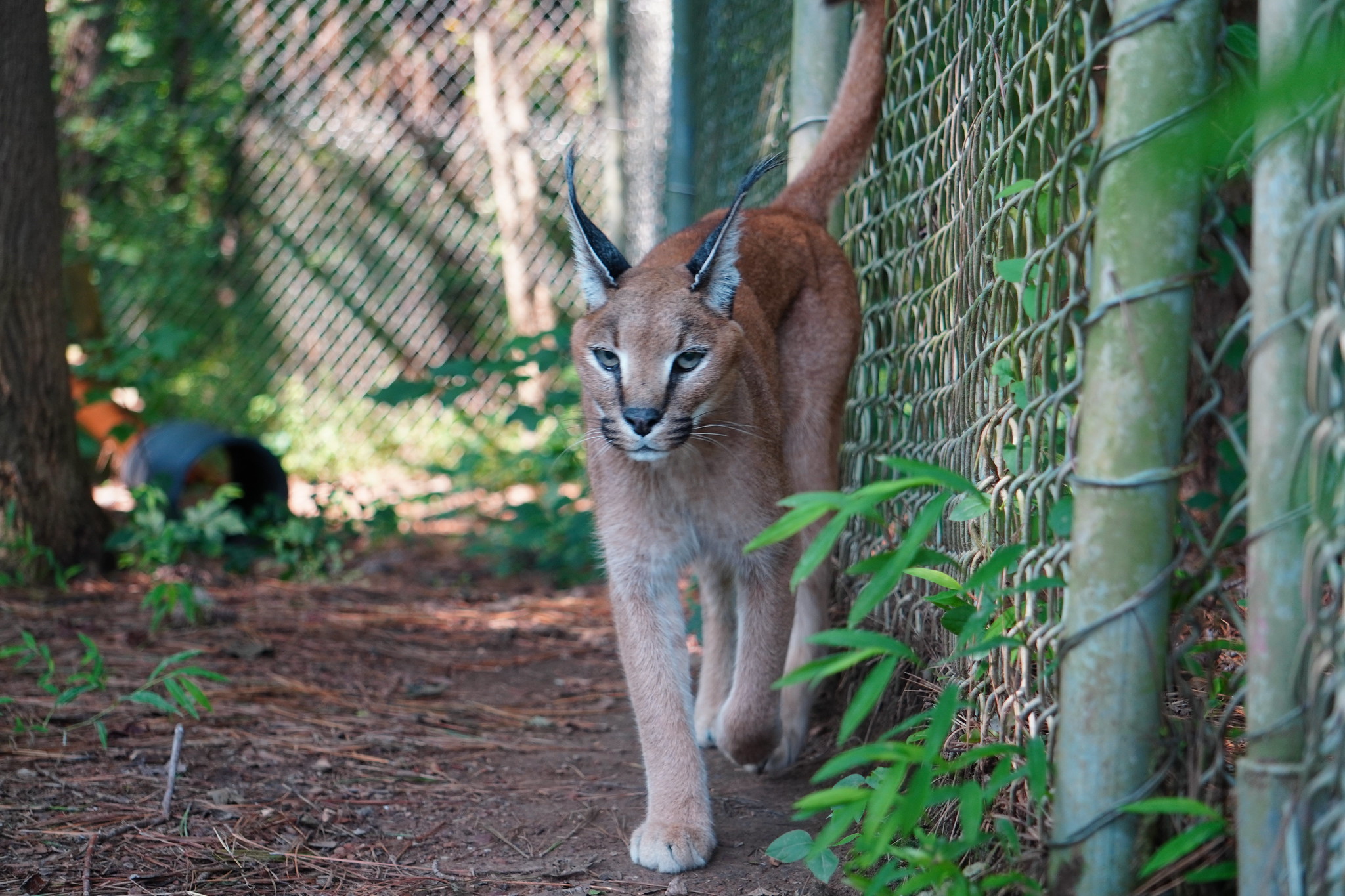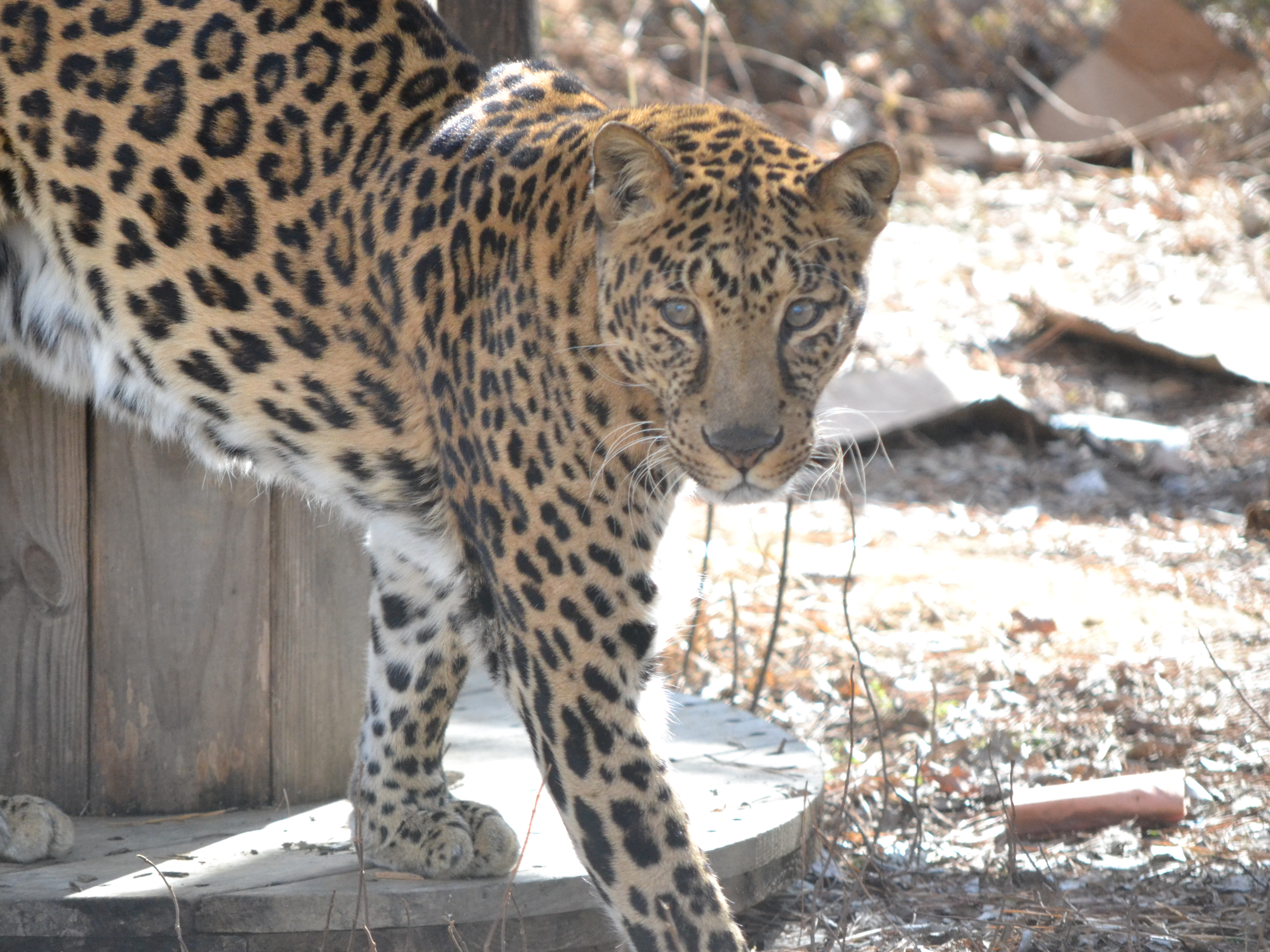
Caracals, also known as desert lynx or African lynx, are medium-sized wild cats native to Africa and Asia. These animals have a distinctive appearance, with long, tufted ears and a short, beige-brown coat. They are known for their agility and speed, and are capable of reaching speeds of up to 50 miles per hour.
Caracals are found in a variety of habitats, including deserts, savannas, and woodlands. They are primarily active during the night and early morning, and are solitary animals. They are skilled hunters, and prey on a variety of small mammals, birds, and reptiles. They are also known to take down larger animals such as gazelles and young impalas.

One of the most striking features of caracals is their long, tufted ears. These ears are used to detect prey and communicate with other caracals. They are also used for thermoregulation, as the ears are large and thin, and can dissipate heat effectively.
Caracals are known for their agility and speed, and are able to leap great distances and climb trees with ease. They are also skilled swimmers, and are known to swim across rivers and lakes in pursuit of prey. They are also very stealthy, and are able to sneak up on their prey undetected.
Despite their ferocious hunting skills, caracals are not considered a threat to humans. They are not known to attack people, and generally avoid human settlements. They are also not considered a major threat to livestock, as they primarily prey on wild animals. However, caracals are facing threats to their survival, primarily due to habitat loss and hunting. They are considered a vulnerable species by the International Union for Conservation of Nature (IUCN), and their population is thought to be declining.
Conservation efforts are being made to protect caracals and their habitats. In some countries, hunting of caracals is strictly regulated, and habitat preservation efforts are being made to protect the areas where they live.


Kitwana Caracal
Kitwana came to Carolina Tiger Rescue as part of our largest rescue to date. He was rescued from a roadside zoo in Colorado that housed 110 animals on about four acres of land. Kitwana and 15 other animals were brought to Carolina Tiger Rescue in the fall of 2016. He is a very social caracal who enjoys coming up to see who is visiting him. He will often wander up to the fence to see what is happening and if one of his keepers is stopping to feed him. Like most cats, he enjoys napping in the sun, but his favorite time is feeding time.
Nelly Caracal
Carolina Tiger Rescued Nelly and her enclosure mate, Pharaoh Serval, from private owners in Tennessee. When their life situation changed, the owners had to find the wild cats a new home. Like most rescues, it has taken Nelly some time to get used to her new home. She enjoys spending time with her enclosure mate, Pharaoh Serval, and they have been found sharing the same heated den box on cold nights. She, of course, has the feisty attitude caracals are known for.




